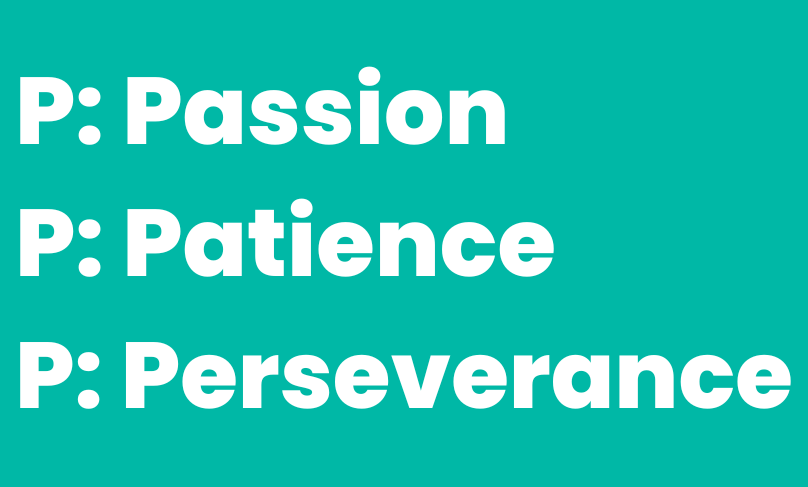Ultimate Guide to Earning a Successful PhD Degree: Tips and Strategies

Obtaining a PhD degree and earning the doctorate title before your name is a long journey. There are always situations where we start losing faith and confidence in ourselves. This is where the Six Mantras for a Successful PhD Journey come into play.
The journey towards achieving PhD is long and full of hurdles. It involves a good mindset and an urge to learn more. This article will help you with the six mantras you can follow to get your PhD degree faster.
Contents
1. Self Belief
My first submission is that you have the grit to get that PhD degree. Keep hope, confidence, and faith in your potential and abilities. It helps if you have an unshakeable belief in yourself. If you have that, you can accomplish this journey easily. So, the first mantra towards successful PhD degree is to have unshakable self-belief & you can become a PhD holder.
Belief plays a significant role in making you more confident about pursuing your doctoral degree. Also, it majorly correlates to your motivation. So please keep your self-belief: “Yes, I can do it.”
2. Have Passion, Patience & Perseverance
My second mantra is to have passion, patience, and perseverance.

What PhD actually stands for is not Doctor of Philosophy; for me, it stands for three P’s: passion, patience, and perseverance. Why passion? Because you have all chosen a PhD topic that interests you.
Each one of you have chosen a topic that interests you. PhD topic is something that interests us, and if we put in passionate and wholehearted efforts, nobody in the world can stop us from achieving success. When we put in sincere, spirited, and committed efforts, nothing can prevent us from achieving success. So, when you’re pursuing a PhD, do it with passion and give it your wholehearted effort.
Since PhD is a long journey, it is like a marathon, not a sprint. It’s not a 100-meter, 200-meter, 400-meter, or even an 800-meter race; it’s a full marathon filled with numerous hurdles. You will encounter difficulties, challenges, problems, and issues. It would help if you had tremendous patience and perseverance to overcome each obstacle between you and your PhD degree to succeed. Perseverance means not giving up.
There will be times during your PhD journey when you may feel that it’s not your cup of tea, that it’s not going to happen, that you’re unable to do it, that you’re not understanding, that you’re lost, or that you can’t find your way. In those moments, remind yourself that you have the ability, be patient, and don’t give up. You will reach your destination or goal. So, my dear friends, please have passion, patience, and perseverance. If you can exhibit these qualities, you can easily accomplish this journey.
3. Socially Beneficial Research
The third mantra to you is, while doing your research, think about the impact of your research. What is the outcome of your research? Is it going to be beneficial to society? What can you contribute in terms of knowledge or any benefit or advantage for any of the stakeholders of society? Is your research socially helpful? Is it going to have some impact?
So, please ask this question yourself and do it in such a way that some stakeholders of society benefit from your research. Your study’s outcome should benefit some stakeholders or society at large. Think from that perspective.
You should draft a research proposal for getting funds from a research agency as part of your coursework. Madam will highlight what is included in the coursework, but one aspect is to draft a proposal and send it to the funding agency to get funds. One of the criteria that funding agencies use while giving research grants is the impact of your research on society at large. If it is impactful, then the funds are provided. So, think from this perspective about how your PhD research would be beneficial to society at large.
4. Quality Research
My next submission to you is to do quality research. What do I mean by quality research? Quality research has more accurate, reliable, valuable, and valid findings and conclusions or outcomes and results. How can we arrive at correct conclusions? How can we arrive at reliable findings?
We can only arrive at reliable findings using a systematic, methodical, and scientific approach while doing research. So, whatever we do in research, you will have to think from this perspective: is what I am doing logical? Is it scientific? Are the processes, methods, and tools I use scientific, justified, and logical? If so, then you are on the right track.
So, please use appropriate techniques, tools, and a process while researching. Do it methodically, do it scientifically, and if you do it scientifically and methodically, you will reach conclusions or findings that are more reliable, accurate, and valid. People will have more trust in your findings. So, do quality research.
5. Do It Yourself
The fifth mantra to get your PhD degree faster is to do it yourself. When I say do it yourself, from A to Z, from the conceptualization of research to reaching conclusions, including data collection and data analysis, you should do every research stage. Why? Because if you do every stage yourself, you will learn practically how to apply research methodology while doing research.
When you learn practically, it will enrich you in terms of your experience. Not only that, it will give you authority and confidence, and you will be able to reach more reliable and trustworthy findings. You will become an authority on that subject if you do everything yourself. So, do not outsource. Try to do everything by yourself. If it is data collection, you go out in the field and collect the data.
If it is data analysis, you learn all those tools and apply them so that you will understand all the nitty-gritty details and do it meticulously. You will appreciate the issues while analyzing data and have more confidence in your work. You will have more trust, and you will become an authority. Your findings will be more reliable. So, do it yourself. Don’t rely on any third party.
6. Plan-Do-Check-Act Cycle (PDCA)
My last submission to you, friends, is to use the PDCA cycle. What do I mean by the PDCA cycle? It is the Plan-Do-Check-Act cycle. What does it mean?
You have to plan your research work so that you can submit it in three years. Take your time with five years. If you decide to complete your work in three years, that’s your goal. Then, you must divide that into yearly, monthly, and weekly goals and plan accordingly.
For example, in the first year, you will do this; in the second year, you will do that; in the third year, you will do something else. In the first year, you will do this in the first six months; in the first three months, you will do that. So, month by month, week by week, month by month, year by year, make a plan and follow it.
If you can follow that plan and check it at the end of every week and every month, you will be able to take corrective action if your plan changes. Follow the Plan-Do-Check-Act cycle. It will help you stay on track, and you will be able to accomplish this journey in three years.
Most of the time, the problem with a Ph.D. is finding time because all of you are working, you have family responsibilities, and you have duties at your organization, whether an academic institution or an industry. Our schedules are packed. What is required on our part is to devote some time to PhD every day.
If you spend at least one hour every day, you can accomplish this journey in three years. The most important thing is giving time and having a goal and a plan to achieve this journey. So, three years are divided into months, divided into weeks.
Have a plan for every week, have a plan for every day, and keep following it, checking it, supervising your work, and then taking corrective action if required. For this purpose, my submission to you is to have a habit of writing what you do every day in a diary. Whenever you meet your respective guide, show that diary and discuss your work. I have done this in the last six months, last month, and last week, and now this is my plan. Discuss with the guide, get the guidance, and then do the work. So, my submission to you, dear friends, is to follow the Plan-Do-Check-Act cycle.
Do everything yourself and use the Plan-Do-Check-Act cycle to the fullest extent. If you follow these six mantras, your journey will be smoother, easy for you to accomplish, which is easier for the guides and the centre to monitor.
In the end, I would say you to: have self-belief, passion, and patience. Do research that is socially beneficial and impactful. Do quality research where the findings and conclusions are more reliable, accurate, and valid.
If there are doubts that you need help? Drop them into the comments and I will surely assist you.
